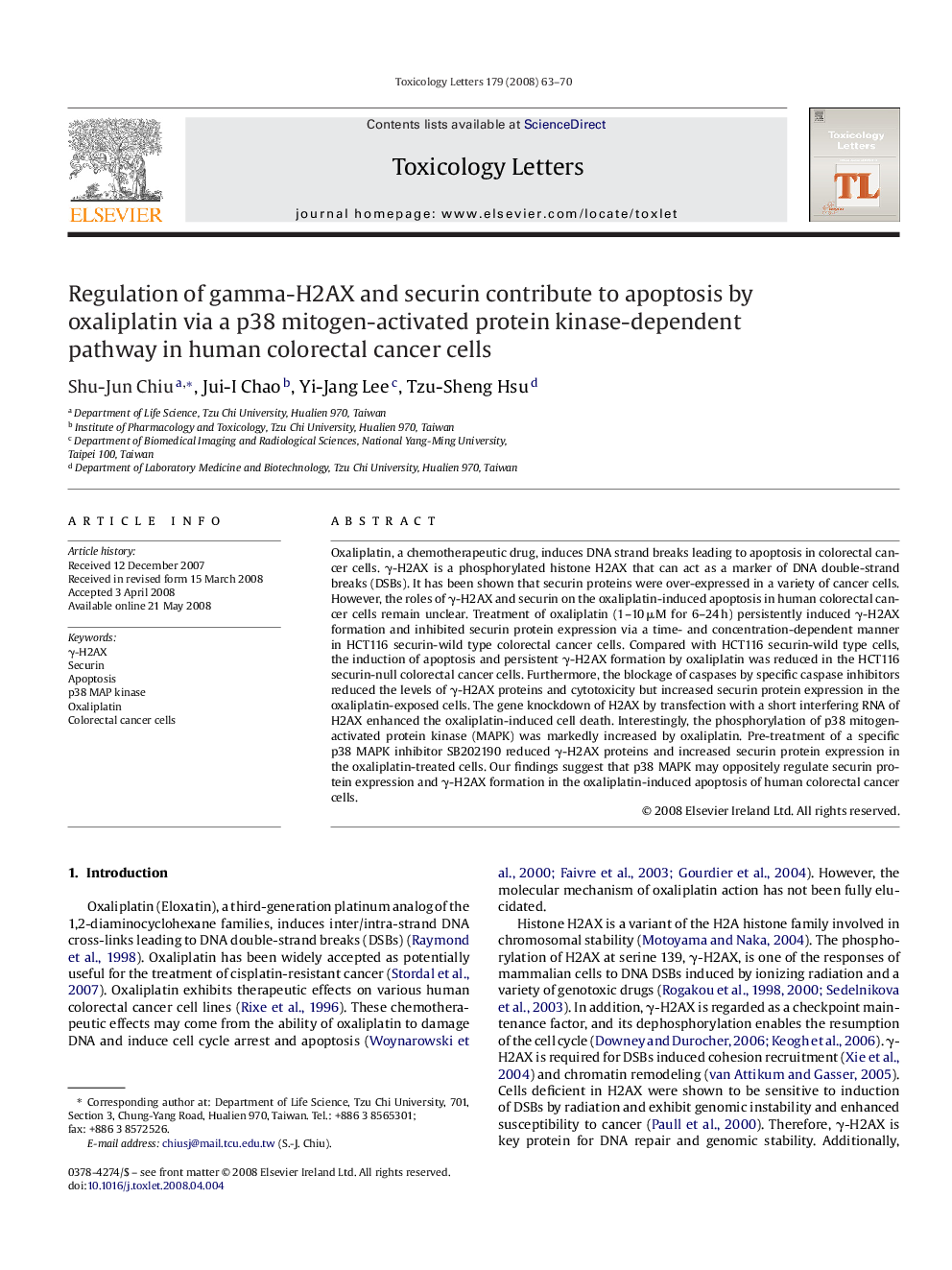| کد مقاله | کد نشریه | سال انتشار | مقاله انگلیسی | نسخه تمام متن |
|---|---|---|---|---|
| 2601372 | 1133316 | 2008 | 8 صفحه PDF | دانلود رایگان |

Oxaliplatin, a chemotherapeutic drug, induces DNA strand breaks leading to apoptosis in colorectal cancer cells. γ-H2AX is a phosphorylated histone H2AX that can act as a marker of DNA double-strand breaks (DSBs). It has been shown that securin proteins were over-expressed in a variety of cancer cells. However, the roles of γ-H2AX and securin on the oxaliplatin-induced apoptosis in human colorectal cancer cells remain unclear. Treatment of oxaliplatin (1–10 μM for 6–24 h) persistently induced γ-H2AX formation and inhibited securin protein expression via a time- and concentration-dependent manner in HCT116 securin-wild type colorectal cancer cells. Compared with HCT116 securin-wild type cells, the induction of apoptosis and persistent γ-H2AX formation by oxaliplatin was reduced in the HCT116 securin-null colorectal cancer cells. Furthermore, the blockage of caspases by specific caspase inhibitors reduced the levels of γ-H2AX proteins and cytotoxicity but increased securin protein expression in the oxaliplatin-exposed cells. The gene knockdown of H2AX by transfection with a short interfering RNA of H2AX enhanced the oxaliplatin-induced cell death. Interestingly, the phosphorylation of p38 mitogen-activated protein kinase (MAPK) was markedly increased by oxaliplatin. Pre-treatment of a specific p38 MAPK inhibitor SB202190 reduced γ-H2AX proteins and increased securin protein expression in the oxaliplatin-treated cells. Our findings suggest that p38 MAPK may oppositely regulate securin protein expression and γ-H2AX formation in the oxaliplatin-induced apoptosis of human colorectal cancer cells.
Journal: Toxicology Letters - Volume 179, Issue 2, 30 June 2008, Pages 63–70